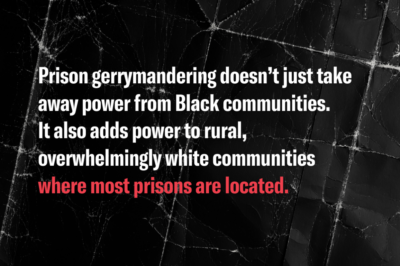South Dakota Settles Largest-Ever Voting Rights Lawsuit Brought by ACLU on Behalf of Native Americans
FOR IMMEDIATE RELEASE
RAPID CITY, SD – After nearly 30 years of ignoring a federal law meant to protect Native Americans from voting discrimination, state and county officials here have agreed to obtain Justice Department approval of more than 600 statutes and regulations that affect elections in the state, the American Civil Liberties Union’s Voting Rights Project announced today.
“This historic settlement will remove some of the discriminatory barriers Native Americans have faced at the ballot box and ensure that their voting rights will be better protected in the future,” said Bryan Sells, a staff attorney with the ACLU’s Voting Rights Project and lead counsel in the lawsuit that led to the settlement.
“The unprecedented level of Native American participation in Tuesday’s election is further evidence that Native Americans are finally beginning to overcome the voting discrimination — past and present — that has historically shut them out of the political process,” he added.
If approved by the court, the agreement will settle a sweeping lawsuit, Elaine Quick Bear Quiver et al. v. Joyce Hazeltine et al., filed in August on behalf of two Lakota elders and two tribal officials residing in Todd and Shannon counties. The lawsuit sought to enforce Section 5 of the Voting Rights Act of 1965, which requires certain states or parts of states, counties and municipalities to get federal approval or preclearance of their new voting laws or practices before they can be implemented.
Under the terms of today’s settlement, also known as a consent order, the state must, among other things:
- Obtain Justice Department approval of any changes in voting practices or procedures enacted after November 1, 1972, when Section 5 of the Voting Rights Act took effect;
- Refrain from implementing two statutes ACLU attorneys flagged as being particularly harmful to Native Americans unless and until they have obtained preclearance;
- Implement, under the supervision of a magistrate judge, a remedial plan that provides for the orderly submission of all unprecleared voting changes in accordance with Section 5 and provides the ACLU and their clients the opportunity to monitor the state’s compliance with the remedial plan and the consent order.
“This is a first step toward correcting a system that has alienated my people from the political process for decades,” said Alfred Bone Shirt, a Lakota activist and named plaintiff in the ACLU lawsuit. “The eyes of the nation should be on South Dakota. We must hold the state’s nose to the grindstone so future compliance is guaranteed and Indian empowerment insured.”
The settlement was signed by Joyce Hazeltine, South Dakota’s Secretary of State, and Susan Pahlke and Lance Russell, attorneys for Todd and Shannon counties, respectively. The settlement must now be approved by a three-judge panel of the federal district court before the conditions become binding.
“By agreeing to comply with the Voting Rights Act, South Dakota takes one more step toward achieving a fair and open process — something that our clients want, the state needs and democracy demands,” said Jennifer Ring, Executive Director of the ACLU of the Dakotas. “When folks in Bennett County can finally elect a Sheriff who promises not to engage in racial profiling, they can change their lives and the lives of their children and grandchildren,” she added.
The ACLU first became aware of South Dakota’s noncompliance with Section 5 when the state legislature failed to submit their 2001 legislative redistricting plan to the Attorney General for preclearance. The ACLU filed a separate lawsuit (Alfred Boneshirt et al. v. Joyce Hazeltine et al.) which challenged other violations and sought compliance from the state for the redistricting plan. Earlier this year, a federal district court ruled that South Dakota officials violated Section 5 by failing to obtain preclearance before implementing the new plan.
Patrick Duffy of Rapid City is serving as ACLU cooperating attorney in this case.
Stay Informed
Every month, you'll receive regular roundups of the most important civil rights and civil liberties developments. Remember: a well-informed citizenry is the best defense against tyranny.




